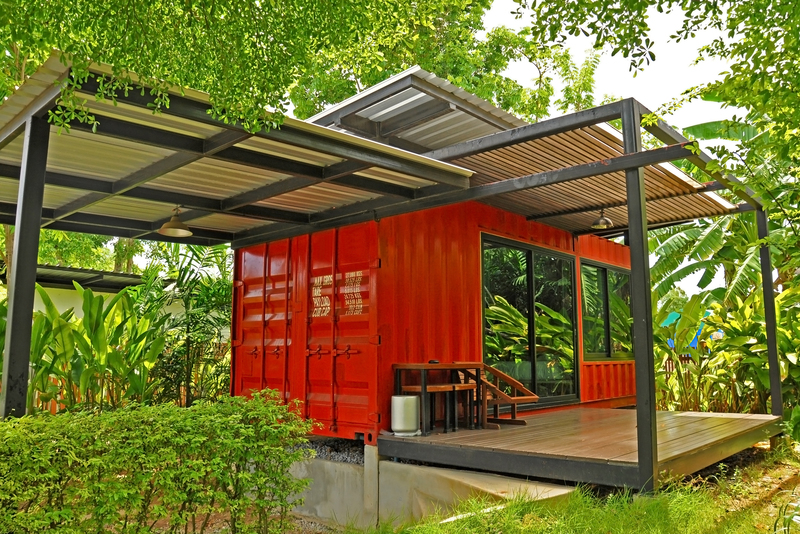The Ultimate List of Pot and Pan Recycling Options
Are your old pots and pans taking up valuable space in your cabinets? Many of us have kitchenware that's seen better days, but throwing them away contributes to landfill waste and harms the environment. That's why knowing about pot and pan recycling options is critical. This comprehensive guide offers practical, eco-friendly, and creative solutions for giving your cookware a second life.

Why Recycle Pots and Pans?
Before diving into the best ways to recycle pots and pans, let's understand why it's important. Cookware, especially metal, can be recycled and repurposed, reducing the demand for new materials. Landfills are already overburdened, and kitchenware, though durable, will remain in the environment for years if not correctly disposed of. By finding eco-friendly disposal options, you help conserve resources and limit your carbon footprint.
- Environmental Benefits: Reduces metal mining and manufacturing pollution.
- Resource Conservation: Repurposes valuable resources like aluminum and stainless steel.
- Decreases Landfill Waste: Keeps bulky items out of landfills and minimizes methane emissions.
Can You Recycle Pots and Pans?
Most pots and pans are made of metals such as aluminum, stainless steel, and copper, all of which are technically recyclable. However, the recycling process isn't always straightforward. Factors like non-stick coatings (e.g., Teflon), attached plastic handles, and other non-metal components can complicate things.
What About Non-Stick or Coated Cookware?
*Recycling non-stick* pans requires extra care. Some municipal recycling programs won't accept them due to the coating, but many scrap metal recycling centers will still take them after removing handles or lids. If pans are significantly damaged or the coating is peeling, it's especially important to recycle properly to prevent toxins from entering the environment.
Your Ultimate List of Pot and Pan Recycling Options
1. Scrap Metal Yards
The most reliable option for recycling pots and pans is your local scrap metal recycling center. They accept metal objects and process them for reuse.
- How to Prepare: Remove any plastic, rubber, or wood elements (e.g., handles or lids) to ensure only metal is recycled.
- Where to Find: Search for "scrap metal recycling near me" or check your local directory.
- Materials Accepted: Aluminum, stainless steel, copper, and sometimes cast iron cookware.
2. Curbside Recycling Programs
Many cities offer curbside recycling for certain types of metal, but it's essential to check your city's rules first. Some programs only accept aluminum cans or tin, not bulky items like pots and pans. Others may request you drop large items off at a collection point.
- Check Guidelines: Visit your municipality's website for specifics.
- Non-Stick Notes: Non-stick and coated pans are less likely to be accepted here.
3. Donation to Charities and Thrift Stores
If your pots and pans are still in usable condition, consider donating them. Charities, shelters, and thrift shops often need cookware, especially for families transitioning to new homes.
- Where to Donate: Goodwill, Salvation Army, Habitat for Humanity ReStores.
- What's Accepted: Clean, functional cookware without severe damage or chipping.
4. Reuse and Upcycling Ideas
Get creative by transforming old pots and pans into unique household items or garden features.
- Planters: Turn pans into herb gardens or hanging planters.
- Art Projects: Paint or decorate for wall art or children's crafts.
- Storage: Use as catch-alls for tools, art supplies, or odds and ends.
- Pet Dishes: Clean thoroughly to create bowls for pets.
- Garden Accents: Use large pots as bird baths or water features.
5. Mail-In Recycling Programs
Some companies provide mail-back recycling options for cookware. This is especially convenient if you live in an area without robust recycling facilities.
- TerraCycle: Offers a comprehensive cookware recycling solution (fees apply).
- Manufacturer Take-Back: Brands like GreenPan and Calphalon sometimes run take-back or exchange programs. Always check the package or website for current details.
6. Specialized Recycling Events and Drop-Offs
Some municipalities hold special recycling events or operate "hard-to-recycle" drop-off points for bulky metal items, including pots and pans. These programs are often organized during spring cleanouts or Earth Day events.
- Event Listings: Check municipal bulletins, library boards, or city websites.
- Accepted Materials: Often takes all types, including non-stick and coated cookware.
Preparing Your Pots and Pans for Recycling
To ensure your cookware is responsibly recycled or repurposed, follow these easy steps:
- Clean Thoroughly: Remove all food residues and wash thoroughly.
- Detach Non-Metal Parts: Take off plastic, rubber, or wood handles and lids. These may be recycled separately, depending on local facilities.
- Sort by Material: Separate aluminum, stainless steel, copper, and cast iron where possible.
Common Types of Pots and Pans: Can Each Be Recycled?
Aluminum Cookware
- High recyclability due to demand for scrap aluminum
- Remove all non-metal attachments first
Stainless Steel Pots and Pans
- Widely accepted at scrap yards and many recycling centers
- May earn a small payment based on weight
Copper Cookware
- Extremely valuable as a scrap metal
- Generally accepted everywhere; peel off coatings or linings if possible
Non-Stick/Teflon-Coated Pots and Pans
- Challenging to recycle curbside
- Accepted by some scrap yards after removing coatings/handles
- Best donated if still in good condition
Cast Iron Pans
- Highly recyclable and durable
- Great candidates for restoration or donation if not heavily damaged
FAQ: Pot and Pan Recycling Options
What should I do if my town doesn't accept pots and pans in recycling?
*Look for scrap metal yards or mail-in programs.* Even if curbside pickup doesn't take cookware, specialty options abound!
Can non-stick pans be recycled with the coating on?
Most scrap yards prefer the coating removed since Teflon isn't recyclable, but some facilities will accept them as is. Always call ahead!
What happens to pots and pans after recycling?
Metals are melted down and repurposed for new products--ranging from car parts to new kitchenware. By recycling, you're truly closing the loop.
Is it worth donating scratched or dented cookware?
Minor scratches or dings often don't impact usability. If items are safe to use, most charity shops will happily accept them.
Tips for Extending the Lifespan of Your Cookware
Before you discard, consider if your pots and pans could be revived:
- Season cast iron: Restoring surface with oil and heat can revive old pans.
- Remove minor rust or stains: Soak and scrub with baking soda or vinegar before deciding to recycle.
- Replace handles: If that's the only damaged part, sometimes you can order a new handle.
Sustainable Brands and Eco-Friendly Upgrades
When you're ready for new cookware, choose items from sustainable brands made from recycled materials and featuring recyclable parts. Many companies now prioritize green manufacturing in their supply chain.
- Brands like All-Clad, GreenPan, and Made In offer products with recycling and take-back programs.
- Check warranties: Long-lasting products reduce future waste.

Conclusion: Making Recycling Pots and Pans Easy
Now that you know the ultimate list of pot and pan recycling options, you have plenty of choices for extending the life of your kitchenware responsibly. Whether recycling, donating, reusing, or mailing in, you're contributing to a cleaner planet and more sustainable kitchen habits.
Choose the option that works best for your cookware's condition and your community's capabilities. With these comprehensive solutions, it's easy and rewarding to keep your old cookware out of the landfill--and inspire others to do the same!
Quick Checklist: Options for Recycling Kitchenware
- Scrap metal recycling centers
- Curbside recycling (if accepted locally)
- Charity shops and thrift stores
- Community recycling events or drop-off centers
- Upcycling projects
- Mail-in recycling programs
Get started today and make a positive impact--one pan at a time!
